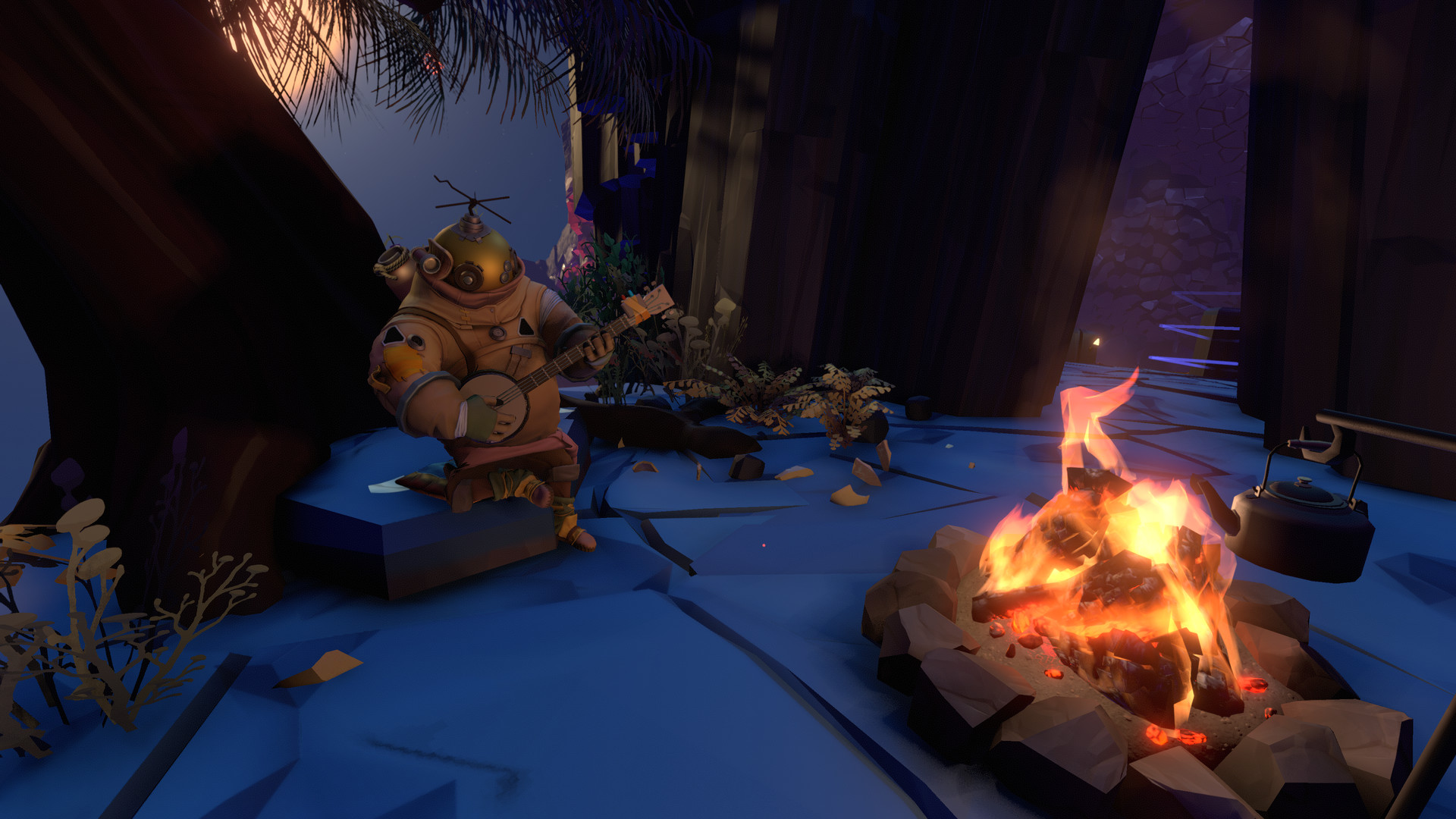‘Outer Wilds’ Is a Story About Hope Wrapped in an Existential Crisis

Credit to Author: Ricardo Contreras| Date: Tue, 25 Feb 2020 23:17:27 +0000
Spoilers for Outer Wilds below!
Outer Wilds came out in 2019, a year that was chaotic and terrifying for a lot of folks. And yet, it was a full of hope, telling a story about community, crisis, and coming to terms with finality. A game where you explore a clockwork solar system might not seem like the best structure to deliver a narrative, but the folks at Mobius Digital managed to build a world that felt alive and full of history, even as it dies time and time again. Join Austin, Patrick, and Cado as they discuss their time exploring the solar system, having existential crises, and finding hope in the future. You can listen to the full episode below.
Austin: I guess the question there, in terms of like capital "L" lore stuff is are [the other NPCs at the Eye of the Universe actually there] at all? Are they projections from your mind as you fall into the fucking center of the universe and die? Is God at the center of the universe, or a God at the center of the universe, who is pulling things from your mind?
Cado: That was definitely the thing for me. These weren't those people, right? This was the idea of community being the most important thing–
Austin: Your character sees nothing, and nothing says "What comes to mind?" And your character says "the people around me." It says community. If there's one thing I've learned from reading all of this shit, it's other people are important, and I'm one of them and we're together and that's it. If I have to fill in the nothing with something, it's other people, and I will do a bunch of little funny, goofy, kind of scary puzzles to bring them with me at the very end in the weird forest.
Patrick: The one moment that didn't land with me about that message in the ending was that these are just random people you met. There's not like an indication these are real close friends of yours. The game doesn't spend a lot of time establishing that up front. It's not meant to be a game where you spend an extraordinary amount of time with NPCs. And so there's a universal sense of community, but I don't know that the game spent an extraordinary amount of time laying the groundwork for why community is important. I mean, I guess?
Austin: I mean the Nomai story is that, right? All of their stuff is dialogue, right? You're never finding "a person writes a thing to themselves." They're always talking to other people, so I think the universal thing is there. I think the other half of it is [that] I did take a lot of joy in going back to each of the Outer Wilds members and updating them. A lot of them you can go to and be like, "Oh hey, I found this thing" and they'll be like "Oh, wow, cool. okay." And you're right, there's not a lot there, there's not depth there. I think the deepest thing is the quantum moon conversation because it's actually a conversation. Well, it's in some ways the least like a conversation. But in other ways, it's such a–
Patrick: But it feels like a cultural exchange, [which] feels so profound, whereas the [the other interactions] mostly just feel like perfunctory NPC conversations you're having, with some some lore dumps around the galaxy.
Cado: Yeah, that's what that's part of why I saw them as more as stand-ins for the concept of other people. And I spent so much time in that first run before the time loop actually starts that I did still have a connection to the Harthians as a people that, for three quarters of me playing this game, I was thinking I was going to save, right? So making this new universe from that impulse of wanting those connections to stay, having those people live so that they can continue their lives together. But then taking that impulse and being like, "Okay, well, that is kind of the energy we want to put into the next universe." That was super beautiful.
This transcript was edited for clarity and length. Discussed: Outer Wilds 00:00, Games News 1:55:05, Politics Talk 2:05:45
You can subscribe on Apple Podcasts, Google Play, and Stitcher. If you're using something else, this RSS link should let you add the podcast to whatever platform you'd like. If you'd like to directly download the podcast, click here. Please take a moment and review the podcast, especially on Apple Podcasts. It really helps.
Interaction with you is a big part of this podcast, so make sure to send any questions you have for us to gaming@vice.com with the header "Questions." (Without the quotes!) We can't guarantee we'll answer all of your questions, but rest assured, we'll be taking a look at them.
Have thoughts? Swing by the Waypoint forums to share them!
This article originally appeared on VICE US.